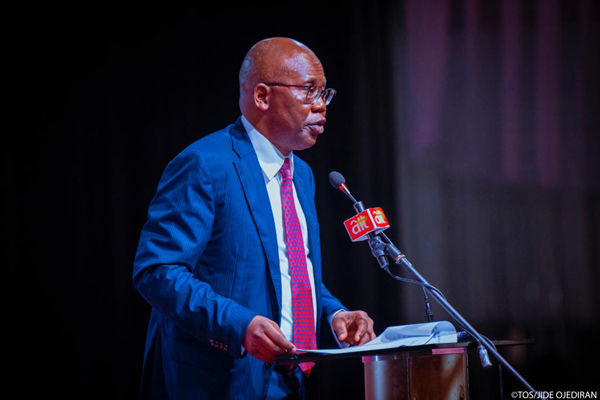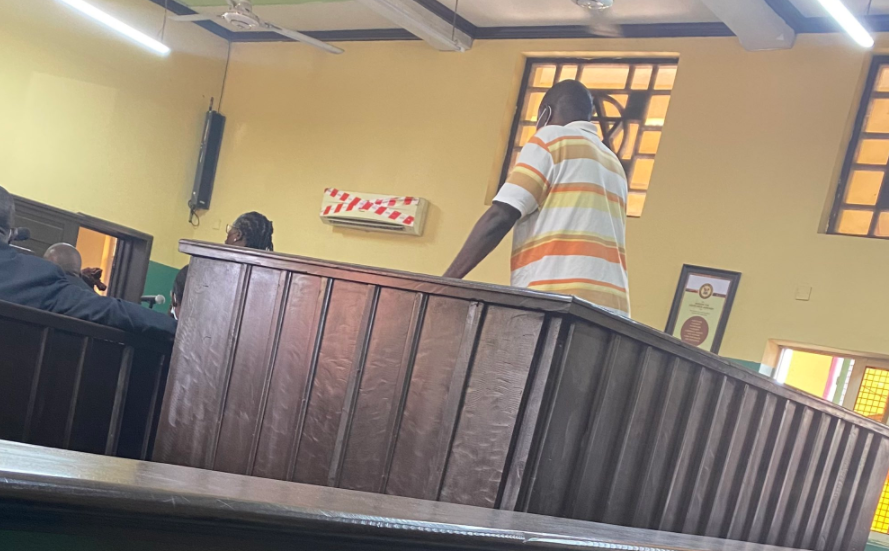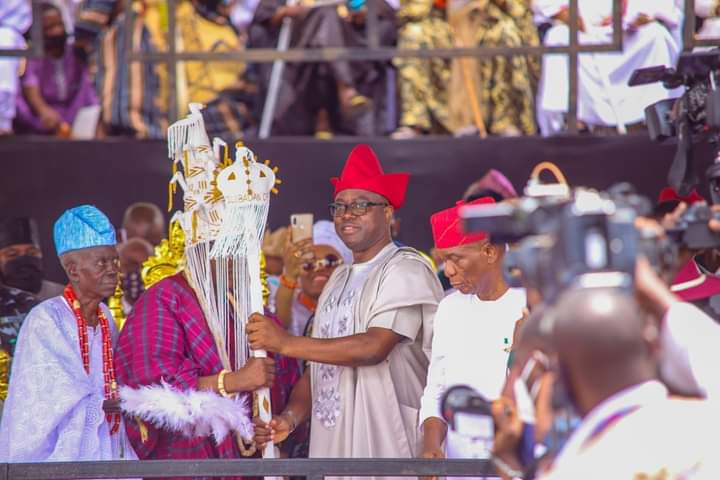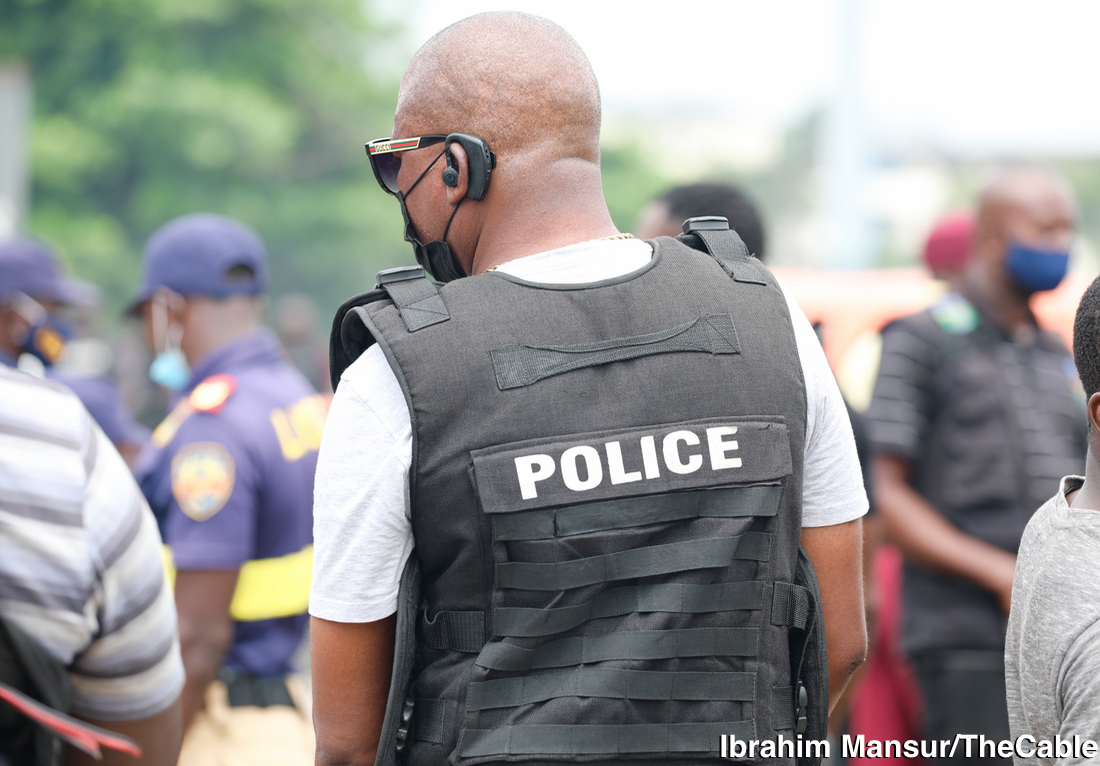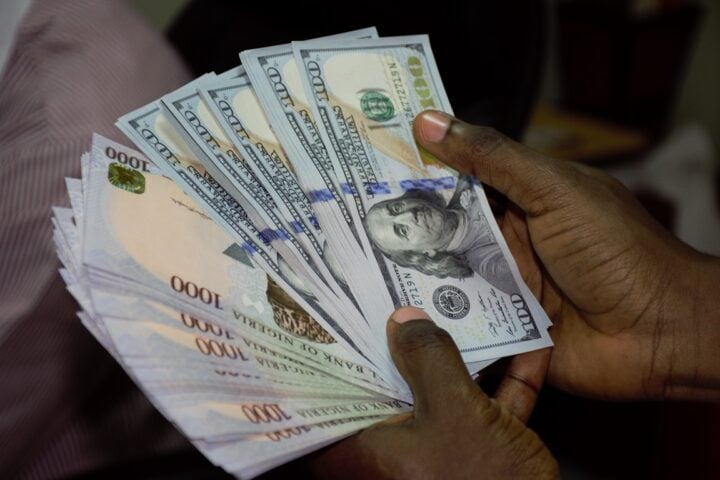JP Morgan Chase Bank says Nigeria cannot prove its allegations of fraud and corruption against the bank and Mohammed Bello Adoke, former attorney-general of the federation, in the OPL 245-related case.
In its opening submissions for trial at the Business and Property Courts of England and Wales Commercial Court, JP Morgan said the claimant, which is the Federal Republic of Nigeria (FRN), “cannot establish a fraudulent and corrupt scheme on the facts” presented before the commercial court.
Adoke has always denied any wrongdoing in the OPL 245 deal, alleging political persecution and maintaining that there is a grand conspiracy to twist a failed mortgage transaction he did in 2013 as evidence of the alleged corruption.
In March 2021, an Italian court ruled that there was no proof of corruption in the $1.3bn deal, discharging and acquitting all the defendants.
Advertisement
At the trial, Ednan Tofik ogly Agaev, a former Russian ambassador to Colombia, said he was pressured to mention a name in his interrogation by the FBI and he randomly mentioned Adoke. He refused to adopt the statement he made to FBI in court.
Vincenzo Armanna, a former ENI manager who is also on trial, told the same court that, in fact, Adoke threatened to arrest and prosecute ENI officials for negotiating kickbacks.
But Nigeria is pressing ahead with claims against JP Morgan in the UK, alleging “a corrupt and fraudulent scheme” and accusing the bank of being negligent in effecting payments to Malabu Oil & Gas Ltd, the original owners of OPL 245 who sold the oil block to Shell and Eni via a deal brokered by FRN.
Advertisement
Nigeria is asking for $1.7bn as compensation from JP Morgan, but the bank has told the UK Court that Nigeria has suffered no loss as a result of transactions.
Responding to the allegations before the court, JP Morgan said it was only carrying out instructions given by Goodluck Jonathan, the Nigerian president at the time.
The bank explained further that “while [Nigeria] still seems to maintain its case as regards President Jonathan, it has now accepted (as was always obvious) that ‘it is impossible to demonstrate conclusively that President Jonathan benefitted from the OPL 245 transaction’”.
Citing proceedings from Nigerian courts, JP Morgan said on April 13, 2018, “the Nigerian Federal High Court granted declarations to the effect that Mr Adoke could not be held personally liable in respect of the payments to Malabu (and the giving of instructions to JPMC to make them) because he was merely carrying out the lawful directives and approvals of the President”.
Advertisement
‘No evidence that Adoke took bribes’
The bank said for the claimant to make a case, it must prove that “Mr Adoke caused the Resolution Agreements to be concluded and the payment instructions to be issued; and that he did so in exchange for bribes”.
It went on to say that the conclusion of the agreements was a substantial piece of government business which involved dozens of ministers and officials who are not alleged to have done anything wrong, hence Adoke was not personally responsible for the agreement.
Speaking to the allegations of bribery against Adoke, the bank said Nigeria’s case “contains no particulars at all of any agreement or understanding pursuant to which he is alleged to have taken, or agreed to take, bribes”.
JP Morgan said “there is, in fact, a wealth of evidence which is inconsistent with the argument” that Nigeria is making that Adoke brokered the agreement to assist Dan Etete as part of a conspiracy in exchange for bribes.
Advertisement
The bank concluded that all that Nigerian side has provided “is plainly insufficient to justify a finding that Mr Adoke was involved in any fraudulent and corrupt scheme”.
‘No evidence of fraud’
The bank, through its lawyers, said Nigeria has made very serious allegations of fraud and corruption and has the responsibility of proving its claims with cogent evidence.
Advertisement
“The FRN bears the burden of proving the facts on which its claim depends,” the bank said, adding that “when pleading fraud, full and specific details of the allegation must be clearly set out.
“As to the evidence required to prove such allegations, the standard of proof is the ordinary civil standard of the balance of probabilities. However, the more serious an allegation, the more convincing is the evidence required to prove it.”
Advertisement
It further argued that “the courts have repeatedly emphasised that cogent evidence is required to justify a finding of fraud or other discreditable conduct” but Nigeria “has no direct evidence in support of its case that there was a fraudulent and corrupt scheme as alleged”.
It noted that the Nigerian side has also refused to call forth any witnesses before the court, and has not “provided any proper explanation of its failure to do so”.
Advertisement
The defendant said: “No court – civil or criminal – in any jurisdiction has ever found that there was a fraudulent and corrupt scheme as now alleged.
“On the contrary, the Italian criminal proceedings – in which the defendants included many of the alleged participants in the scheme, including Mr Etete, Shell, Eni, and various current or former employees of Shell and Eni – resulted in all of the accused being acquitted of all.
“When criminal proceedings were launched against Mr Adoke in 2016 in Nigeria, he was successful in obtaining an order from the Federal High Court declaring that his involvement in the negotiation, execution and implementation of the Resolution Agreements “was in furtherance of the lawful directives/approvals of the President in the exercise of his executive powers” and that he could not therefore be held personally liable in respect of the same. As noted above, some of the major participants in the alleged scheme, such as former President Jonathan and former Attorney-General (Bayo) Ojo, have never been charged with any crime.
“Despite the fact that the FRN accuses Shell and Eni of participating in the alleged fraudulent and corrupt scheme, the FGN has never taken any steps to revoke the grant of OPL 245 to SNEPCO and NAE, or to rescind the Block 245 Resolution Agreement pursuant to which the grant was made. It has also advanced arguments in multiple proceedings, including before this Court, which either rely on, or are predicated on the validity of, the Resolution Agreements.”
Evidence shows Adoke’s move was official
According to JP Morgan, Nigeria claimed the resolution agreements were concluded pursuant to a “further” fraudulent and corrupt scheme, creating the impression that the agreements and the payments were somehow secretive.
Nigeria seems to be advancing a position that the resolution was a result of a clandestine arrangement involving only the small number of people now alleged to have accepted or agreed to accept bribes.
The bank argues that the evidence proves that the instruction received from Adoke, a senior minister and most senior law officer in the Nigerian government at the time was as a result of a well scrutinised federal policy.
Citing a detailed record kept by Jonah Otunla, the accountant-general of the federation at the time, JP Morgan said the negotiation took place over several months and involved meeting between Shell, Eni, Ministry of Finance, Ministry of Justice, Department of Petroleum Resources (DPR), and Nigerian National Petroleum Corporation (NNPC).
As a result of the many meetings, Adoke wrote to the DPR to comment on the draft resolution which came out of those meetings. The bank said it is also on record that Adoke wrote to the managing director of NNPC “to nominate a technical expert, legal adviser, and corporate secretary to participate in the negotiations regarding OPL 245”.
The evidence also shows that on February 3, 2011, Adoke told Eni and Shell that “without the endorsement of NNPC, or at least agreement with them on the terms of the Resolution Agreement, he is ready to disengage with the negotiation” and put the block out for tender.
JP Morgan made it clear that “on a number of occasions the Attorney-General sent detailed, formal letters to President Jonathan explaining the terms of the proposed settlements and seeking his approval, which was subsequently provided”.
The bank said “these would be odd letters to have exchanged if they were co-conspirators in a fraudulent scheme”.
